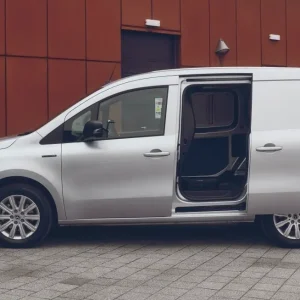Introducing punitive measures against polluting vehicles will not be enough on its own to persuade fleets to adopt alternatively fuelled vehicles (AFVs), with CV operators facing particular challenges.
That’s according to a new, free to download white paper from the AA, entitled ‘Electric vehicles and future fuels’.
In the paper, it says there is a way to go before universal adoption of alternative fuels can be achieved, and argues that if penalties for pollution are introduced without suitable alternatives being available, then many fleets will simply accept the fine and carry on as they were.
The paper states: “For adoption to increase, perceptions around AFVs need to change – but for that to happen, the reality has to alter too.
“Batteries, range, payload and charging infrastructure are just a few of the areas which will need to develop significantly, for EVs to become used in as a widespread a way as possible.
“Similarly, across all AFVs, a far wider choice of suitable vehicles has to be available.”
The paper states that uncertainty about whether the date for a ban on new petrol and diesel vehicle sales from 2040 will be brought forward, or expanded to include hybrids, has led to fleets adopting a ‘wait and see’ approach, which it says is having the opposite effect from that intended, as older and more polluting vehicles are remaining on the road.
This is a particular issue for commercial fleets, often operating on five- or six-year renewal cycles, meaning they could be only two or three vehicles away from the deadline.
According to the paper, many fleet managers doubt the suitability of EVs for long haul and heavy goods transport, with payload a significant issue.
It states: “Range is a major challenge, with batteries on most EVs having ranges of barely 100 miles, meaning multiple breaks for charging on long journeys, with associated downtime which many companies working to tight deadlines cannot countenance.
“There is also a perception that many manufacturers are focusing on their car offer ahead of vans – a key issue for mixed and commercial fleets.”
The paper explains that central to environmental policy is the introduction of clean air zones and the London Ultra Low Emissions Zone.
While it welcomes some delays in the implementation of these to allow more preparation time in the view of the Covid-19 pandemic, it says the implementation of these are broadly supported by fleets – but there are concerns over consistency between schemes in different cities.
The paper argues that as things stand, ICE engines cannot be replaced in the UK’s fleet vehicle parc by EVs alone, and there is therefore a role to play for hydrogen and gas powered vehicles.
It says manufacturers need to produce suitable AFVs in a timely fashion, especially in the commercial vehicle market, where it says there has been far less progress than in the car market.
Meanwhile, it says more research and development is needed with EV batteries so they can facilitate greater range and payloads.
On the subject of integrating AFVs into a fleet, the paper says time should be taken to analyse how vehicles are used and driven, and that drivers need to be educated in best practice and getting the most out of their vehicles.
It states: “In the area of breakdown, our own research shows that the top five EV faults relate, in order, to tyres, 12v battery failure, EV battery being out of charge, EV battery fault and EV charging equipment.
“However, for the last three, the faults are frequently attributable to operation rather than failure – so investing time to educate drivers in how the different technology should be used is absolutely vital.”
The paper says incentives that could increase the take-up of AFVs include the scrapping of VAT on their sale, the introduction of scrappage schemes, and incentives to invest in workplace charging.
It also says it would be helpful for companies to be able to lease infrastructure, rather than having to make a large upfront investment for it, and also to have more help making decisions.
The paper states: “As well as choice and incentive, organisations also need greater knowledge of how they can develop their fleet.
“Undertaking research on areas such as whole life costs and total cost of ownership, while examining how vehicles are used and driven, will enable fleet managers to see what types of AFVs could readily be introduced into their fleets. The availability of independent guidance on this area will help even further.”





